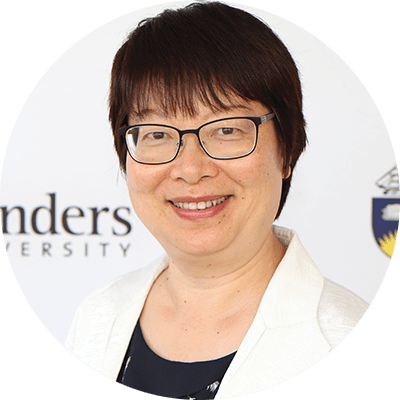Hello my friend in desktop mode.
Hello my friend in desktop mode.
Hello again my friend in desktop mode.
Hello again friend in mobile mode.
Dementia by its nature is alienating. Imagine how much worse the experience is, for both patient and carer, when language and cultural barriers shut them off from help.
Those are exactly the people Professor Lily Xiao is working to reach.
“We need to support the informal carers of people with dementia,” she says, “so they do not need to navigate the huge aged care system and healthcare system to discover which services are available for them.”
Professor Xiao has long experience in cross-cultural care for older people, particularly those living with dementia. She’s worked closely with cultural minorities and understands the importance of communication to the quality of care in aged care and dementia care.
Now, for the first time, Professor Xiao is rolling out a four-year, nationwide project to better equip dementia carers, called “Partnership in iSupport”. Originally developed by the World Health Organisation, it has been culturally adapted for Australia by Professor Xiao. She has received a total of $2 million in funding from the Australian Government to connect informal carers such as family, friends and neighbours with the help they need.
She will work with colleagues in the College of Nursing and Health Sciences and four industry partners – the Southern Adelaide Local Health Network (SALHN), Canberra Health Services, and aged care providers Resthaven in South Australia and Bolton Clarke in Victoria.
“In the first year we are going to work with stakeholders –informal carers, service providers, or the care workers and health professionals who provide the direct care for the people with dementia.”
“We are in phase one to find out a linkworker's roles and responsibilities. It responds to needs many informal carers have called for by linking them to services currently not available for people with dementia and their carers.
Linkworkers will provide one-stop shops for informal carers to find and access available care.
“We know people with dementia rely on family members to organise care services, but carers are not aware about the resources and the services, including education programs for them, that are available,” Professor Xiao says.
“If they have the linkworkers to support them, it will significantly reduce the stress and save the time, with access to people who understand aged care funding and how to apply to relevant services.”
This system will also provide support in co-ordinating other short-term services that are needed from time to time such as hospital-to-home transitional care, and services provided by physiotherapists and dieticians.
The second and third phases of the project will roll out an online iSupport program providing dementia care education for carers, combined with virtual peer support.
“We have found that carers end up shut in at home with the dementia patients most of the time. They lose the opportunity to socialise, and this isolation is a widely recognised problem,” she says.
While Dementia Australia and other community organisations do provide face-to-face care support groups, these often require travel, which even in the best of times is not always possible. This problem was highlighted as a result of COVID-19.
“The COVID-19 situation stopped them going out altogether,” says Professor Xiao. “You must remember most of the carers are old people as well – the spouse of the people with dementia typically – and are 80 or 90 years old already.
“This is why we are building a virtual peer support for them.”
This peer support group will work closely with the linkworkers to make sure people stay in the program and get the help they need.
“In this we are taking lessons from India, where the iSupport program was tested. But without linkworkers to facilitate the program, and without peer support, the majority of carers dropped out.”
What is a first for Australia is also set to become a first for the People's Republic of China.
“Last October – even at a very low point of the relationship with China – the Australian Government released a large grant to support the collaboration between Australia and China, to support Chinese-Australian carers and the carers from Greater China, and to improve the dementia care services as well.”
This will involve building on a previous collaboration with Peking University, Xi’an Jiaotong University, Taibei Medical University, the Chinese University of Hong Kong and Kiang Wu Nursing College of Macau to roll out a similar program to the Australian project, aimed specifically at Chinese-Australian carers and carers in mainland China, Taiwan, Hong Kong and Macau.
But that is just a start.
“The Chinese iSupport for Dementia program is a trial to showcase how it could work with other diverse culture groups and the potential for multilingual versions of the support program in Australia.
“After the Chinese version, we are going to develop other language versions for our multicultural communities here in Australia, for example, Italian, Greek, Vietnamese and Indonesian communities.
“It will be free for family carers to access the online iSupport for Dementia program. We hope this will significantly ease the disease burden on the healthcare and the social care systems in a country with an increased ageing population.”
BRAVE MINDS
Discover how Flinders is making a difference to our culture, economy, environment society and world.
Subscribe to Flinders research
Sign up to get updates on upcoming events, news and more.
I consent to the collection, processing and disclosure of the personal information submitted in accordance with the Flinders University Privacy Policy.
![]()
Sturt Rd, Bedford Park
South Australia 5042
South Australia | Northern Territory
Global | Online
CRICOS Provider: 00114A TEQSA Provider ID: PRV12097 TEQSA category: Australian University










